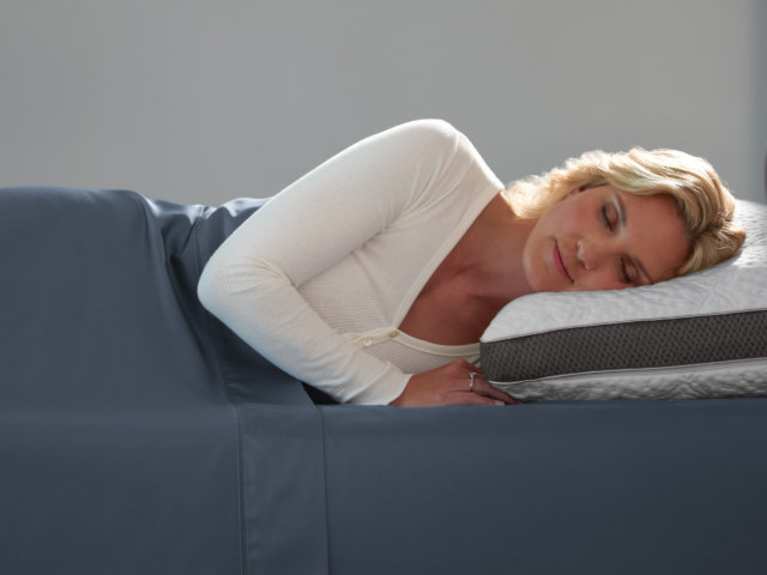
If you're waking early during the week and sleeping late on the weekends, this sleep pattern may be harming your health long-term. What women should know.
Years of studies have found a slightly increased risk of heart disease, breast cancer, diabetes and other health and metabolic conditions in people who work night shifts. Scientists don't fully understand the reasons, but variable sleep patterns and a disrupted circadian rhythm—the body's internal sleep/wake clock—appear to play a major role.
It turns out that speeding up or slowing down your body clock affects your metabolism and your overall health.
What Studies Show for Women
In one study, researchers followed 338 women aged 48 to 58 for just over five years. None of these women were taking insulin medications. The women kept sleep diaries so the researchers could measure their average bedtime, how much it varied over time and how much earlier or later they went to bed when it varied.
Then the scientists measured the women's insulin resistance and body mass index (BMI) twice during the study. Insulin resistance is an indicator of a person's risk for diabetes and BMI is a ratio of height to weight that helps classify how healthy a person's weight is.
The Takeaway?
The researchers found that women who had more erratic bedtimes or frequently went to bed later than their usual bedtime had more insulin resistance the second time it was checked. Those who frequently went to bed earlier than their usual bedtime were more likely to gain weight over time. The kicker—it was shifted sleep-time on the weekends that partly explained these findings.
Is it Getting Too Little Sleep or Shifting Sleep Wake Times the Issue?
This study was the first time researchers had looked at the metabolic health of women who did not do shift work but had inconsistent sleep times. But the findings of another study showed similar effects when the researchers conducted an experiment with 26 adults to see if it's getting too little sleep or actually shifting sleep and wake times that affects health. Half of the adults got five hours of sleep on a consistent bedtime for three days, and the other half got five hours but with shifted bedtimes.
“In our well-controlled laboratory study, we demonstrated that, in healthy young adults, circadian misalignment—a result of irregular sleep schedules—increased diabetes risk to a greater extent than sleep-loss alone," said the study's lead author, Rachel Leproult, a researcher at the University of Chicago. “We also measured an inflammatory marker linked to cardiovascular disease and observed that its levels were more elevated with sleep loss and even more so when circadian misalignment occurred."
These studies suggest what people are realizing more and more every day-- that regular daily sleep routines matter to your health.
So what's the solution?
13 Tips to Help Improve Your Sleep Habits
-
Set a bedtime that is early enough for you to get at least seven hours of sleep.
-
Don't go to bed unless you are sleepy.
-
If you don't fall asleep after 20 minutes, get out of bed.
-
Establish relaxing bedtime routines.
-
Use your bed only for sleep and sex (no television, no computer, no work).
-
Make your bedroom quiet and relaxing. Keep the room at a comfortable, cool temperature. The experts at Sleep Number recommend between 65-68 degrees as the ideal sleep temperature. You can learn more about bedding to help you find your ideal sleep temperature here.
-
Limit exposure to bright or blue light in the evenings.
-
Try to eat dinner at least two hours before bedtime.
-
If you are hungry at night, eat a light, healthy snack.
-
Exercise regularly, but not too close to bedtime. Sleep Number SleepIQ® data shows sleepers who do gentle exercise (like yoga) are the most restful.* Try these Nighttime Yoga Poses To Do In Bed For Better Sleep
-
Avoid caffeine after noon.
-
Avoid alcohol before bedtime. A beer, cocktail or glass of wine with dinner is fine. But three or more drinks will affect your sleep.
-
Reduce your fluid intake before bedtime to reduce middle-of-the-night bathroom runs.
Get the Best Quality Sleep Possible
Perhaps the best solution is finding a bedtime schedule you can stick with consistently seven days a week. It could mean better long-term metabolic and heart health—and you'll feel more energetic in the short term, too.
And above all, make sure whatever sleep you’re getting is the best quality sleep it can be! Sleepers who routinely use their Sleep Number® smart bed features and SleepIQ® technology get almost 100 hours more proven quality sleep per year.**
Like diet and exercise, quality sleep is essential for optimal wellbeing and performance. Because everyone's sleep needs are different, Sleep Number® smart beds sense your movements and automatically adjust firmness, comfort and support to keep you both sleeping comfortably. Find your Sleep Number® setting for your best possible night's sleep, and if you own a Sleep Number® bed, log in to your Sleep Number® Rewards account to see your exclusive offers, refer friends and more.
*Based on SleepIQ® data from 1/2/20 to 1/1/21 and self-reported responses of sleepers using SleepIQ® technology from 5/12/19 – 1/1/21.
**Based on internal analysis of sleep sessions assessing sleepers who use multiple features of Sleep Number® products. Claim based on sleepers achieving over 15 more minutes of restful sleep per sleep sessions.